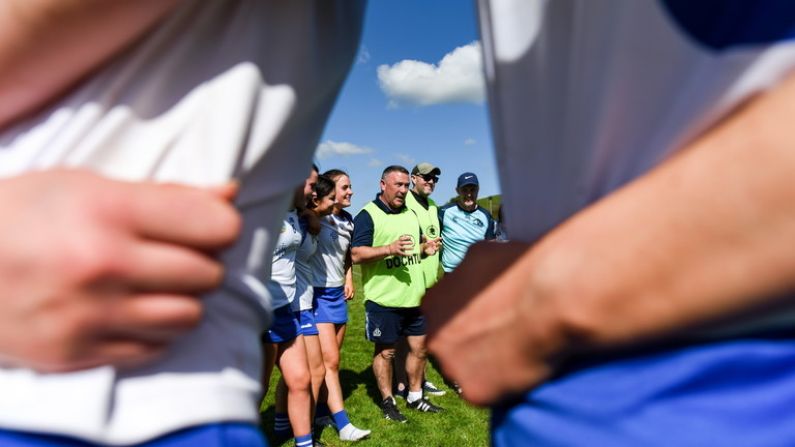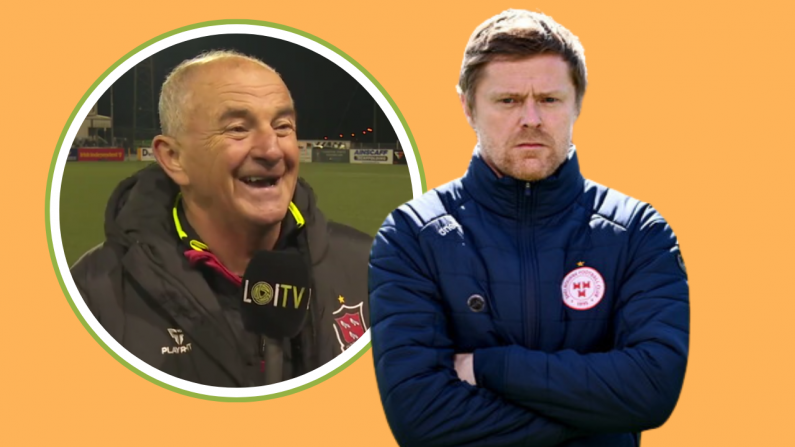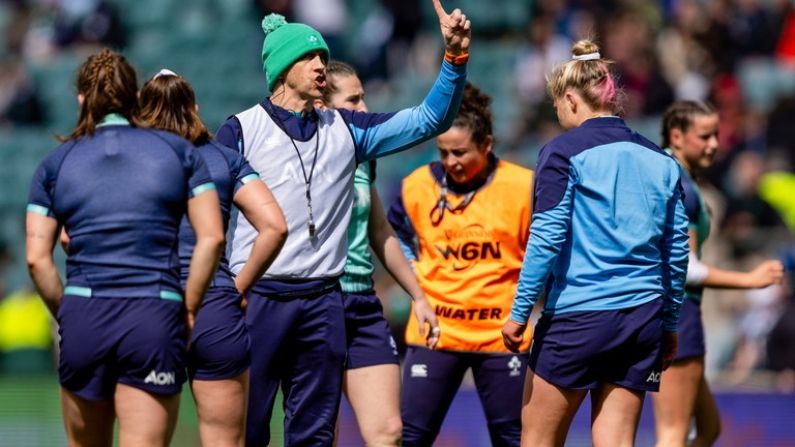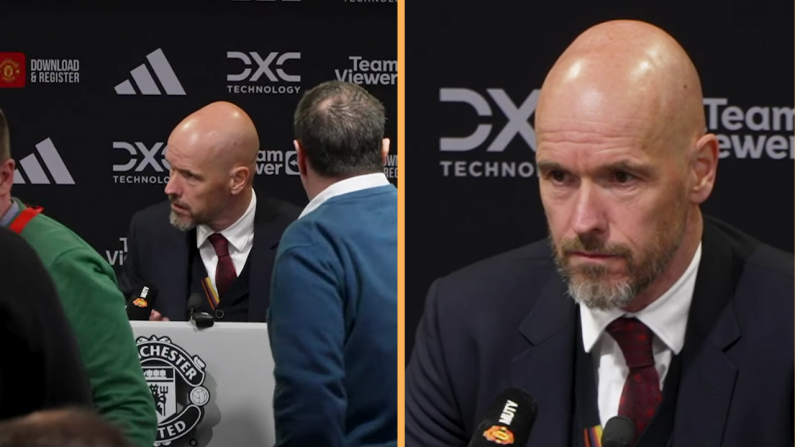Soon to be ex-RTE pundit John Giles spoke about the genius of Johan Cruyff on Off the Ball last night.
Giles played against Cruyff in the European Cup semi-final in 1975. He played in the first leg at Elland Road, setting up a goal for Billy Bremner in a 2-1 win. The game is referenced by Leeds fan John Cassidy in a New Yorker tribute to Cruyff today.
[soundcloud url="https://api.soundcloud.com/tracks/254858312" params="auto_play=false&hide_related=false&show_comments=true&show_user=true&show_reposts=false&visual=true" width="100%" height="450" iframe="true" /]
He broke three ribs in a League game between that and the second leg and thus didn't play in the Nou Camp game. He actually travelled to the match and did co-commentary for RTE on the match - a bittersweet revelation last night. Leeds held Barcelona to a 0-0 draw but lost the final against Bayern Munich in Paris.
Cruyff was a peripheral figure in both legs. Giles paid a thoughtful, warm and relatively understated tribute to Cruyff's majesty. He agreed with the proposition that Cruyff ruled the 70s in the same way Pele ruled the 60s and Maradona ruled the 80s. He marvelled at little Ajax's achievement of winning three European Cups in a row and paid tribute to Cruyff's talents as a coach.
In the course of remembering the 1975 encounter, he hit upon one of his most cherished themes, revealing once more his snobbish central midfielder disdain for the mental capacities of wingers. 'Brainless wingers', that is.
We knew what he could do. But luckily for us in that match (1975 European Cup semi-final) at Elland Road, he restricted himself to playing on the left-wing. Which was great for us because he was always most dangerous when he could go wherever he wanted to and get on the ball and go wherever he wanted on the pitch, he was always a threat.
Whether he was under instructions from the manager, I don't know, but he stayed strictly on the left wing which suited us down to the ground and he didn't do as much damage as he could have done. But he was a great player. He was beautifully balanced on both sides, left foot and right foot. He was very, very quick. Good footballing brain. You see with what we call 'brainless wingers', when they get into a good position, they wouldn't know they were in a good position. He could get into a good position and knew exactly where he was and what was the most dangerous thing to do. He was a great player...
He believes that, taken together, Cruyff's achievements as a coach and a player make him one of the outstanding figures in the history of the game.
If you were to give marks to people in the game, say give them 10/10 for their playing careers and then marks out of ten as a coach. Some of the great players only got 2/10. I'd say he got 10/10. As a coach and player, he definitely has been the outstanding soccer coach and player (combined). He obviously had a good knowledge of the game and a good philosophy on the game.
However, Giles doesn't quite subscribe to the notion that the Ajax and Holland teams of the early 1970s reinvented the wheel in football terms.
The highfalutin idea, promoted by breathless and excitable journalists, that they changed the game forever and evolved an entirely new of playing is, in Giles's view, massively overstated.
Giles was asked by Joe Molloy whether he recalled their style of play as revolutionary.
No, not at all. Years ago, the great Spurs team of 1960-61, they were called a push-and-run team. Now whatever that means, I don't know. They were other labels stuck on some teams in the 60s and then we came to the Dutch team.
Total football. Now, what exactly does that mean? What does it mean? What I read it as was that the full backs came into play. But to be honest Joe, this around the early 70s, we were doing that a Leeds. Manchester United were doing that at Manchester.
But journalists, and people in the media, liked to think this was different, we've got to give it an extra other name. 'Total football'. It's hard to know what it meant.
I think what it meant was that full-backs were given the freedom to come into the game and anyone was given the freedom to come into any position to receive the ball. But there were teams in England, I mean the Hungarian team of 1953 did that.
There were other teams doing that. It's just playing in a free way that people come into space when the ball is on, or full backs pushing forward when the ball is on. Everything is in relation to the ball in football...
Germany played the same way as the Dutch team. I remember the Hungarian team, I watched them as a kid, who hammered at England at Wembley. They did that.
Listen below:











